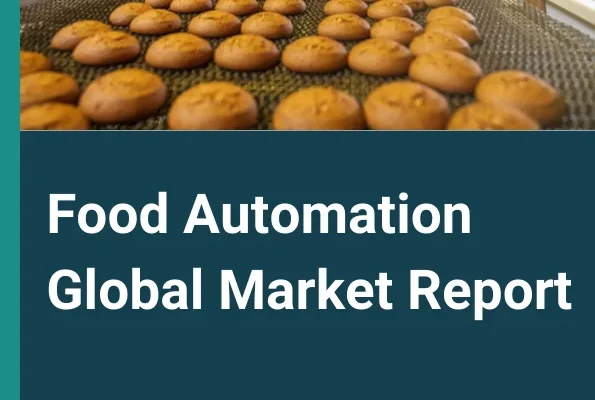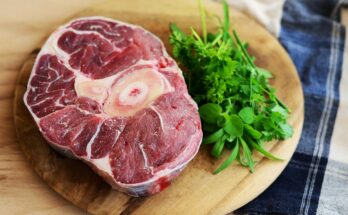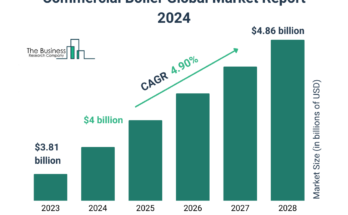The Food Automation Global Market Report 2024 by The Business Research Company provides market overview across 60+ geographies in the seven regions – Asia-Pacific, Western Europe, Eastern Europe, North America, South America, the Middle East, and Africa, encompassing 27 major global industries. The report presents a comprehensive analysis over a ten-year historic period (2010-2021) and extends its insights into a ten-year forecast period (2023-2033).
Learn More On The Food Automation Market:
https://www.thebusinessresearchcompany.com/report/food-automation-global-market-report
According to The Business Research Company’s Food Automation Global Market Report 2024, The food automation market size has grown rapidly in recent years. It will grow from $13.61 billion in 2023 to $15.15 billion in 2024 at a compound annual growth rate (CAGR) of 11.3%. The growth in the historic period can be attributed to increased consumer demand for processed and convenience foods, focus on improving operational efficiency and productivity in food processing, rise in labor costs and workforce availability challenges, need for reduced waste and enhanced production yield in food manufacturing, adoption of automation for traceability and compliance.
The food automation market size is expected to see rapid growth in the next few years. It will grow to $22.64 billion in 2028 at a compound annual growth rate (CAGR) of 10.6%. The growth in the forecast period can be attributed to integration of artificial intelligence (ai) and machine learning (ml) in food automation, demand for flexibility and adaptability in food production lines, expansion of smart packaging and labeling technologies, focus on sustainable and eco-friendly food processing solutions, research and development in next-generation food automation technologies. Major trends in the forecast period include robotic automation for food handling and processing, advanced packaging automation, automated quality inspection and food safety systems, smart sensors and iot for real-time monitoring, digital twin technology for process simulation.
The rising adaptability of automation is expected to propel the food automation market. The rapid push toward automation technology and increased expectations of consumers and regulatory agencies for better product quality and safety has in the increased adoption of automation across industries. It will provide with an effective and efficient solution in the food industry for better food quality, maximum productivity, and profitability with ensured safety using automation technologies to streamline various activities from food processing operations to packaging, reducing the manual effort, increasing safety and maximizing profits. For instance, in December 2021, according to the International Federation of Robotics (IFR), the steady growth of industrial robots reflects the adoption of automation in food and beverage manufacturing, with the total global operational stock of robots increasing by 8.6% in 2020. The operational robot stock in food and beverage manufacturing steadily increased from 81,500 in 2019 to 90,100 in 2020. This adoption was driven due to the availability of better technology, the need to stay competitive and improve workers’ safety. Therefore, the rising adaptability of automation will drive the growth of the food automation market.
Get A Free Sample Of The Report (Includes Graphs And Tables):
https://www.thebusinessresearchcompany.com/sample.aspx?id=6806&type=smp
The food automation market covered in this report is segmented –
1) By Type: Motors And Generators, Motor Controls, Discrete Controllers And Visualization, Rotary Products, Linear Products, Other Types
2) By Operation: Semi Automatic, Fully Automatic
3) By Component: Plant Instrumentation, Plant-Level Controls, Enterprise-Level Controls
4) By Application: Bakery Products, Drinks, Candy, Snacks, Fruits And Vegetables, Meat, Other Applications
Technological advancement is a key trend gaining popularity in the food automation market. The market is witnessing the implementation of next-generation food automation technologies such as robotics, digital twins, internet of things (IoT), analytics, data processing, automated control systems, and others. These advanced solutions offer complete automation reducing human needs entirely and increasing profitability while ensuring safety. For instance, in January 2022, Pazzi Robotics, a France-based kitchen software, and robotics startup firm introduced a fully automated packaged solution for the food and beverages industry with no human intervention during the operations. The solution includes robots that perform tasks from food preparation to final assembly based on fully automated procedures. This solution uses a combination of software, data, and precision robotics.
The food automation market report table of contents includes:
- Executive Summary
- Food Automation Market Characteristics
- Food Automation Market Trends And Strategies
- Food Automation Market – Macro Economic Scenario
- Global Food Automation Market Size and Growth
.
.
.
- Global Food Automation Market Competitive Benchmarking
- Global Food Automation Market Competitive Dashboard
- Key Mergers And Acquisitions In The Food Automation Market
- Food Automation Market Future Outlook and Potential Analysis
- Appendix
Contact Us:
The Business Research Company
Europe: +44 207 1930 708
Asia: +91 88972 63534
Americas: +1 315 623 0293
Email: [email protected]
Follow Us On:
LinkedIn: https://in.linkedin.com/company/the-business-research-company
Twitter: https://twitter.com/tbrc_info
Facebook: https://www.facebook.com/TheBusinessResearchCompany
YouTube: https://www.youtube.com/channel/UC24_fI0rV8cR5DxlCpgmyFQ
Blog: https://blog.tbrc.info/
Healthcare Blog: https://healthcareresearchreports.com/
Global Market Model: https://www.thebusinessresearchcompany.com/global-market-model




